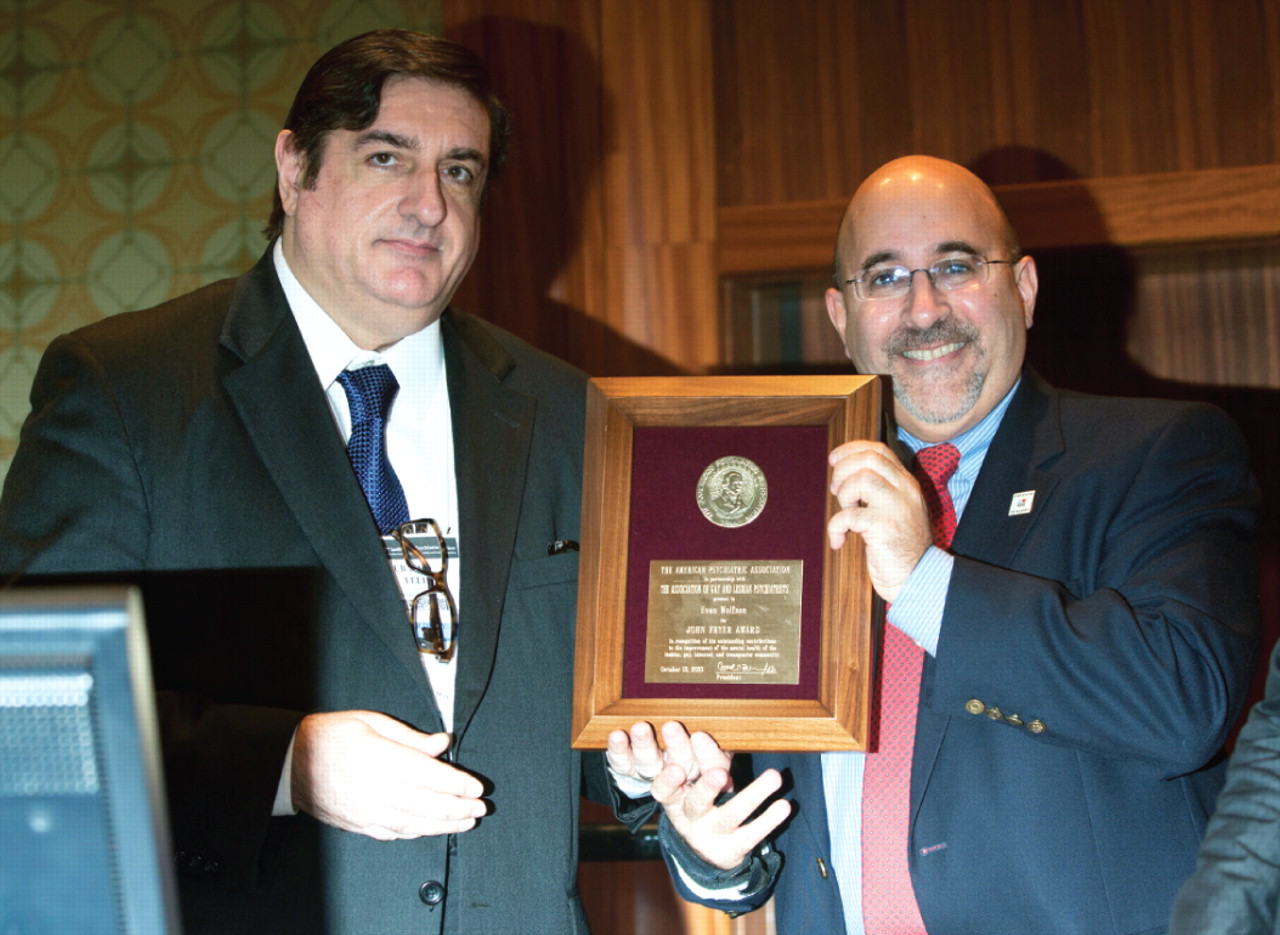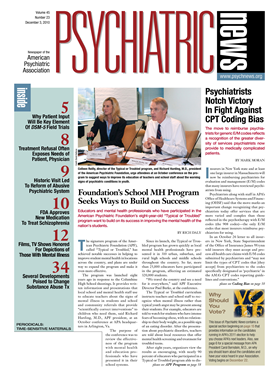Evan Wolfson, J.D. (right), receives the John Fryer Award last month at APA's Institute on Psychiatric Services in Boston. At left is Ubaldo Leli, M.D., president of the Association of Gay and Lesbian Psychiatrists (AGLP).
The award is jointly sponsored by APA and the AGLP.
Wolfson, a long-time gay-rights activist, is founder and executive director of Freedom to Marry. He has been director of the Marriage Project at the Lambda Legal Defense and Education Fund and was co-counsel in the landmark Hawaii marriage case Baehr v. Miike. (In that case, the Hawaii Supreme Court ruled that the state's prohibition on same-sex marriages amounted to discrimination. The ruling resulted in a backlash by opponents of same-sex marriage and contributed to a nationwide debate on the issue.)
In an address at the institute titled “2020 Vision: Winning the Freedom to Marry This Decade,” Wolfson praised the legacy of psychiatrist John Fryer, M.D., and hailed APA for its advocacy of same-sex marriage and for the path it has traveled since 1973 when homosexuality was removed from DSM. “APA was once a part of the problem and now has spent several important decades being part of the solution,” he said.
Noting that five states and the District of Columbia now legally recognize same-sex marriage, Wolfson said 2010 has been a “historic year of accomplishment for the freedom to marry.”
Wolfson said state law and public opinion are the two crucial areas of contention in pursuit of same-sex marriage.
He cited, by way of comparison, legal battles for the right of mixed-race couples to marry. At the time of the landmark 1967 Supreme Court case Loving v. Virginia, which struck down Virginia's prohibition on mixed-race marriage, Wolfson said all but 16 states had already legalized mixed-race marriage. By that measure, the movement for same-sex marriage has work to do.
But in the court of public opinion, the movement is winning hearts and minds: two polls—one by CNN and one by the Associated Press—showed that a majority of Americans now favor same-sex marriage, Wolfson said.
“We have crossed an important threshold,” he said.
(By contrast, at the time of the Loving decision, 70 percent of Americans said they opposed mixed-race marriage, he said.)
Fryer was a gay psychiatrist who appeared at APA's 1972 annual meeting in Dallas wearing a wig and a mask to shield his identity. The public appearance of a gay psychiatrist explaining at an APA meeting why he could not be open within his profession helped to galvanize a group of largely closeted gay psychiatrists within APA at a time when homosexuality was still widely viewed as pathological by psychiatrists and others. The following year homosexuality was removed from DSM.

